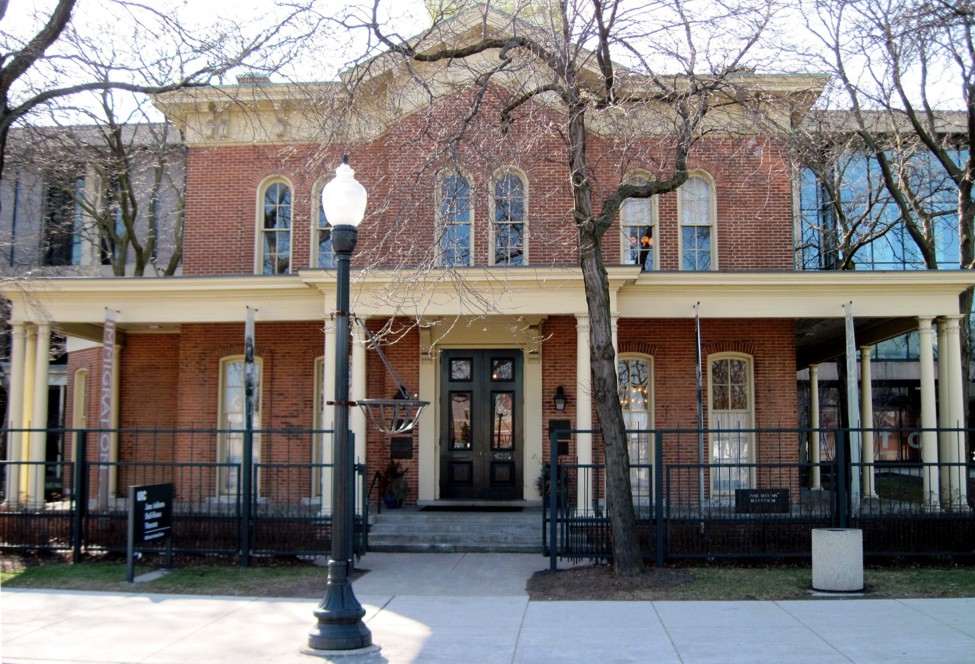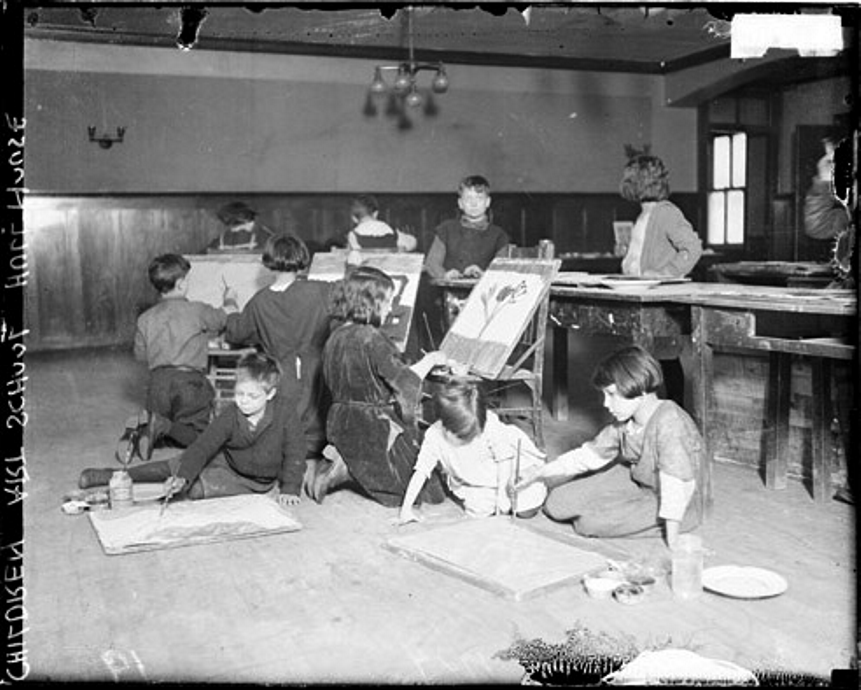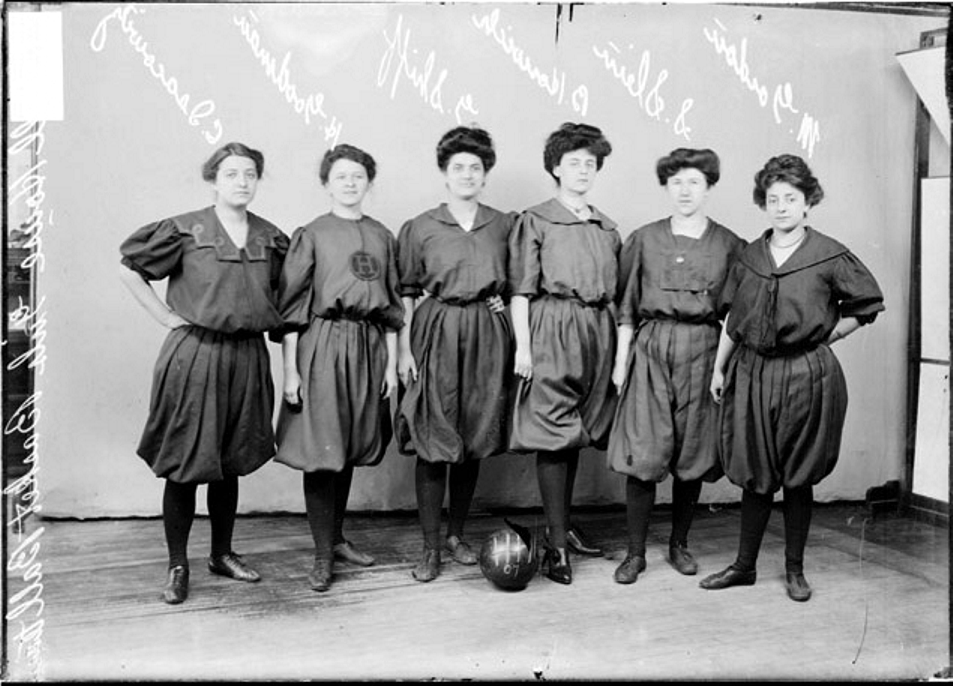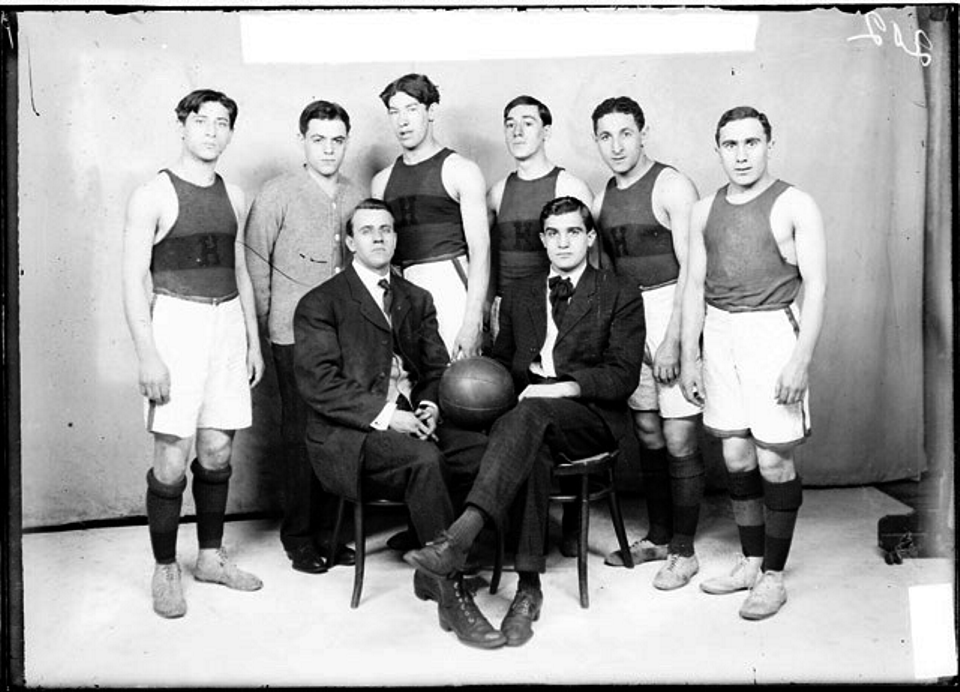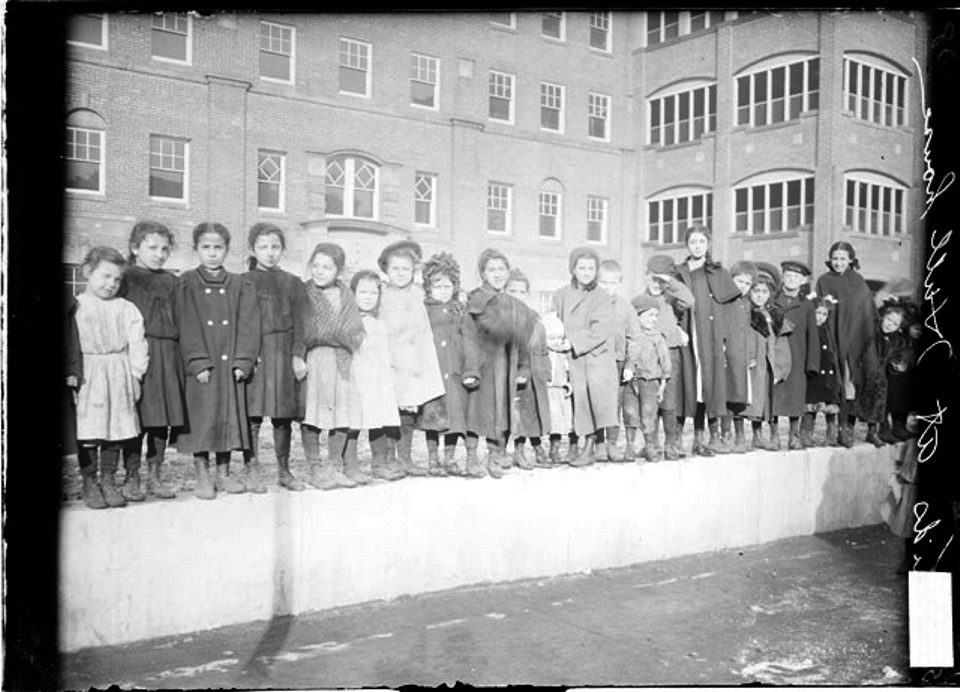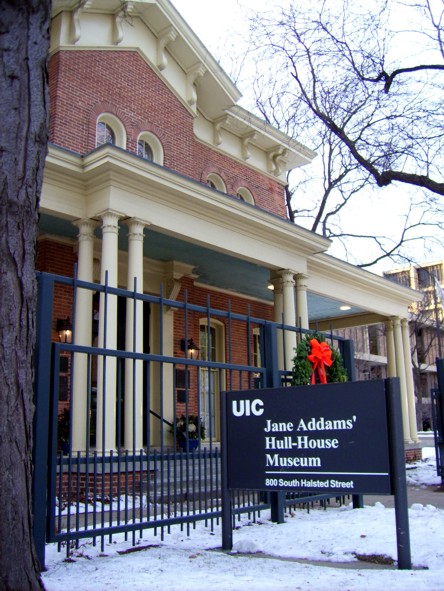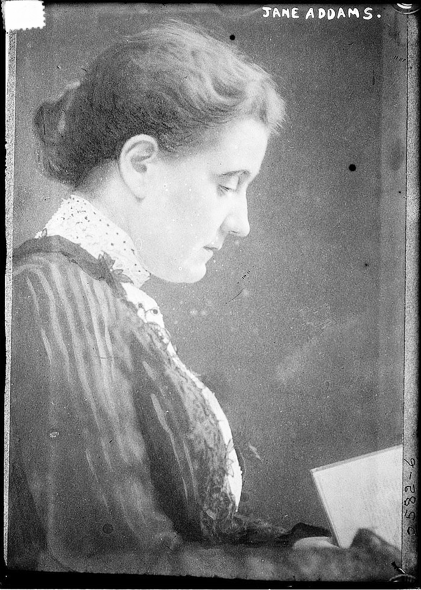 |
Jane Addams and settlement houses A settlement house was a kind of community center set up to help people living in crowded immigrant neighborhoods. They were run by volunteers from middle or upper class families who wanted to help improve life for those at the bottom. The most famous settlement house in the U.S. was started by Jane Addams in Chicago in 1889. Addams was from a fairly wealthy family. She was college educated at a time when not many women went to college. She never married, but by starting a settlement house she became a "mother" to an entire neighborhood in Chicago. Addams and a friend started their settlement house in an area of Chicago where mostly poor immigrants lived. It was named Hull House for the family that originally owned it. |
|
Hull
House today
The photo below shows Hull House as it looks today. Almost all of the tenements and other buildings of the old neighborhood are long gone. The area around the house is now part of a college campus. Hull House remains open as a museum that honors Jane Addams and the other volunteers who lived there so they could help others. |
